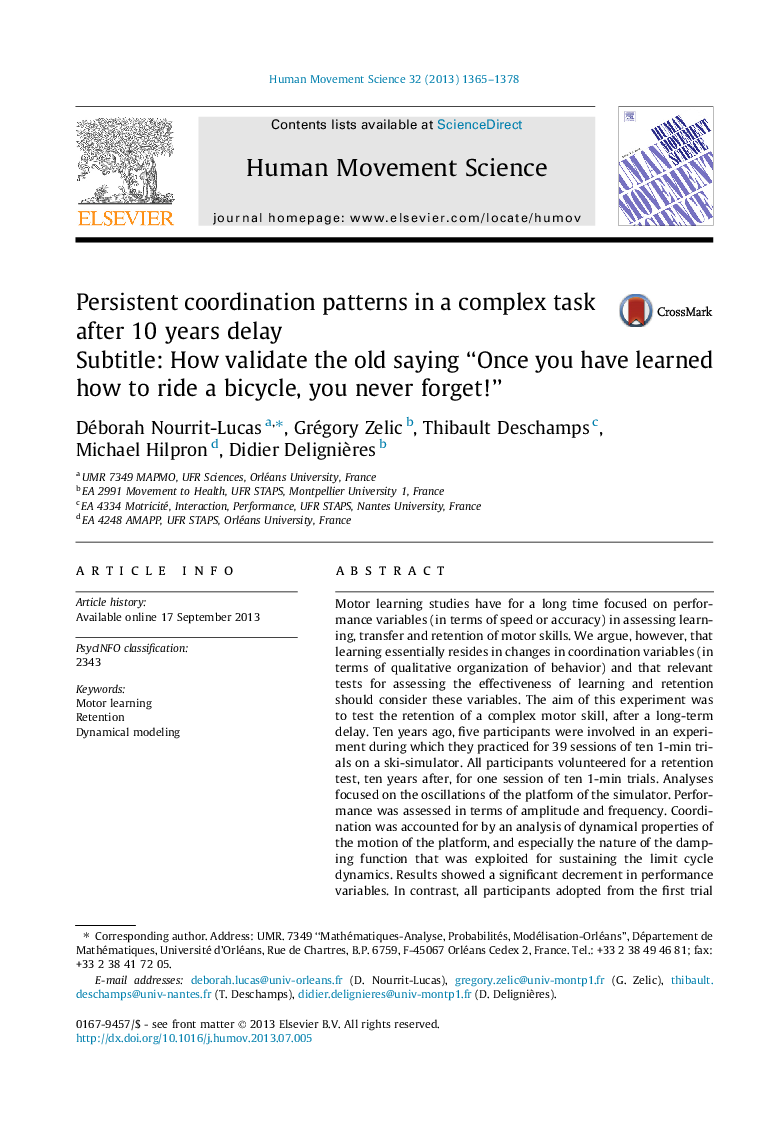| Article ID | Journal | Published Year | Pages | File Type |
|---|---|---|---|---|
| 10459150 | Human Movement Science | 2013 | 14 Pages |
Abstract
Motor learning studies have for a long time focused on performance variables (in terms of speed or accuracy) in assessing learning, transfer and retention of motor skills. We argue, however, that learning essentially resides in changes in coordination variables (in terms of qualitative organization of behavior) and that relevant tests for assessing the effectiveness of learning and retention should consider these variables. The aim of this experiment was to test the retention of a complex motor skill, after a long-term delay. Ten years ago, five participants were involved in an experiment during which they practiced for 39 sessions of ten 1-min trials on a ski-simulator. All participants volunteered for a retention test, ten years after, for one session of ten 1-min trials. Analyses focused on the oscillations of the platform of the simulator. Performance was assessed in terms of amplitude and frequency. Coordination was accounted for by an analysis of dynamical properties of the motion of the platform, and especially the nature of the damping function that was exploited for sustaining the limit cycle dynamics. Results showed a significant decrement in performance variables. In contrast, all participants adopted from the first trial onwards the coordination mode they learned 10Â years ago. These results confirm the strong persistence of coordination modes, once acquired and stabilized in the behavioral repertoire. They also support the importance of coordination variables for a valid assessment of learning and retention.
Related Topics
Life Sciences
Neuroscience
Cognitive Neuroscience
Authors
Déborah Nourrit-Lucas, Grégory Zelic, Thibault Deschamps, Michael Hilpron, Didier Delignières,
